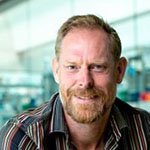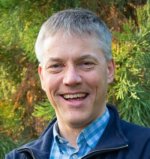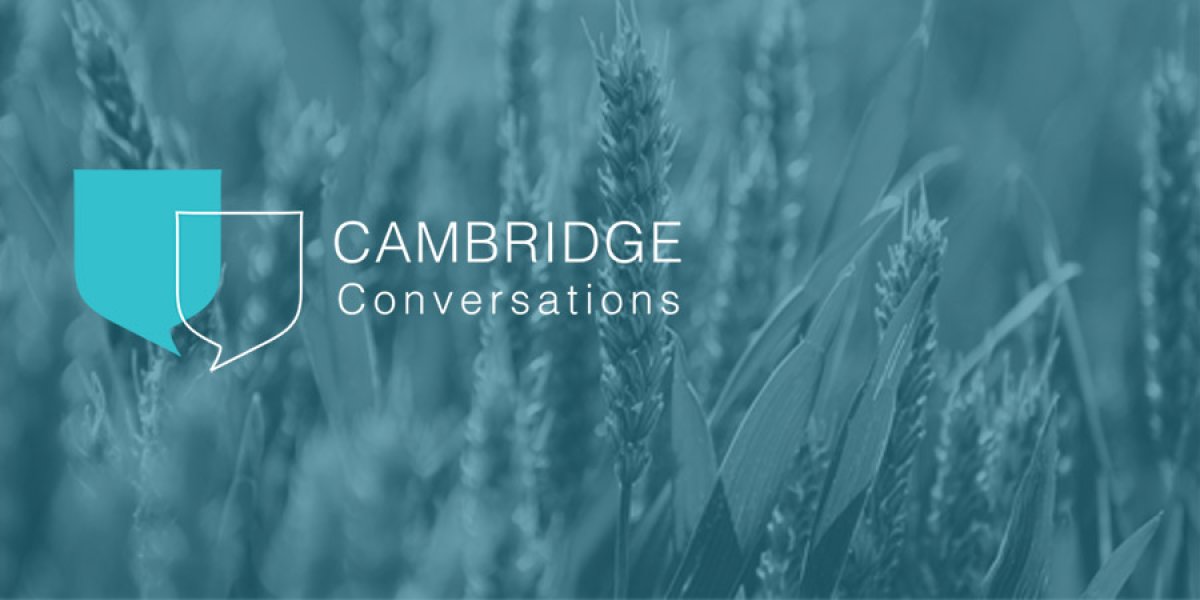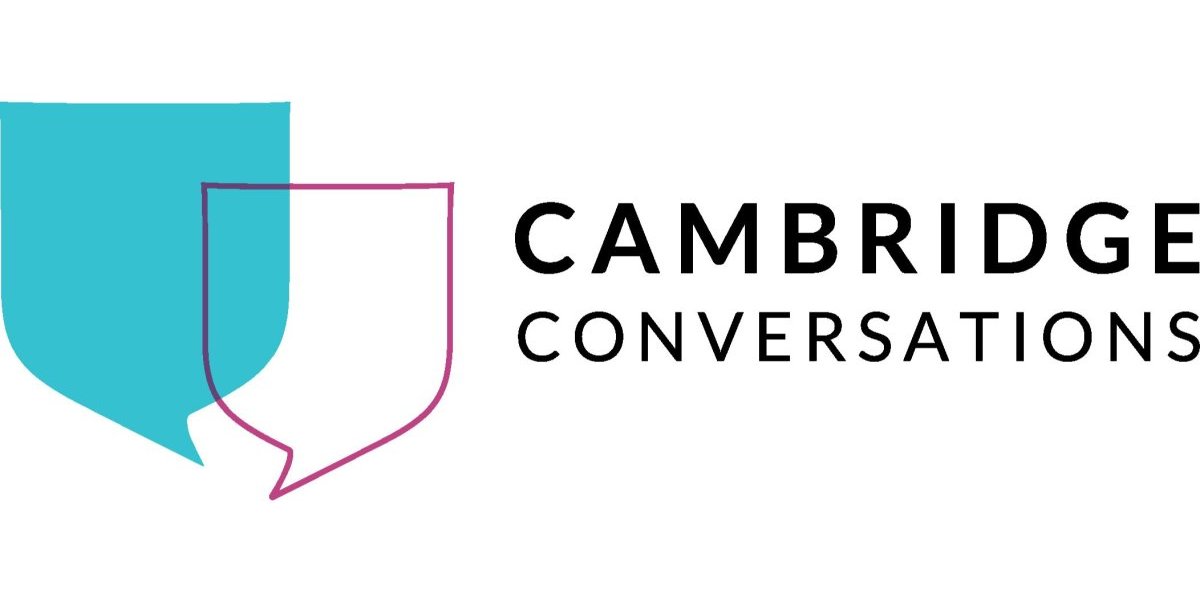Cambridge Conversations: Transforming agricultural processes to feed the world
Cambridge Conversations: Transforming agricultural processes to feed the world
As the planet’s population hurtles towards eight billion and the effects of climate change increase, how do we simultaneously support biodiversity and feed the world? And how do we do so sustainably?
The Vice-Chancellor, Professor Stephen J Toope, was joined by Professor Giles Oldroyd, Director, Crop Science Centre at the Department of Plant Sciences, Professor David Coomes, Director of the Cambridge Conservation Research Institute and Dr Carol Ibe, a postdoctoral research scientist in plant biology and founder of the JR Biotek Foundation. Together, they discussed our need for lasting solutions for stable and secure food production, and what those solutions might be. Through understanding the fundamental way that plants work, we can transform the way food is grown from the desert to the tropics, and at the same time improve sustainability for the future.
Speakers
Professor Stephen J Toope (Trinity 1983)

Professor Stephen J Toope OC, LL.D. is 346th Vice-Chancellor of the University of Cambridge, the first non-UK national to hold the post. He was Director of the Munk School of Global Affairs at the University of Toronto, and President, the University of British Columbia. A former Dean of Law, McGill University, Toope was also Chair of the United Nations Working Group on Enforced and Involuntary Disappearances.
Professor Toope publishes in global journals on human rights, international dispute resolution, international environmental law, the use of force, and international legal theory, and has lectured at universities around the world.
His current book project with Professor Jutta Brunnée explores mechanisms and processes fostering stability and change in international law.
Professor Giles Oldroyd

Professor Giles Oldroyd studies the mechanisms by which plants form beneficial interactions with micro-organisms, both bacteria and fungi, that aid in the uptake of nutrients from the environment, including nitrogen. The primary aim of this research is to reduce agricultural reliance on inorganic fertilisers. He currently heads an international programme, funded by the Bill and Melinda Gates Foundation and the Foreign, Commonwealth and Development Office, to engineer nitrogen-fixing crops to benefit small-holder farmers in Sub-Saharan Africa.
Giles completed his PhD at the University of California Berkeley, studying plant-pathogen interactions, then moved to Stanford University to work on nitrogen fixation in legumes. He started his independent research programme in 2002 at the John Innes Centre in Norwich, and in 2017 moved to Cambridge’s Sainsbury Laboratory. In 2019, he was elected the Russell R Geiger Professor of Crop Science and Director of the Crop Science Centre, an alliance between the University of Cambridge and the National Institute of Agricultural Botany, focused on recognising agricultural impact from fundamental discoveries in plant sciences. In 2020 he was elected a Fellow of the Royal Society and a member of EMBO.
Professor David Coomes (Churchill 1986)

Professor David Coomes is Director of the University of Cambridge Conservation Research Institute, Director of the Centre for Earth Observation, and is based in the Department of Plant Sciences.
Recognising that protecting the world’s dwindling biological diversity is one of the most pressing issues facing humanity, his work uses remote sensing technologies to track changes to natural ecosystems and evaluate the effectiveness of conservation interventions.
Dr Carol Ibe (Newnham 2015)

Dr Carol Ibe is a Postdoctoral Scientist in the Saunders Laboratory at the John Innes Centre, Norwich. Carol’s research focuses on sustainable wheat production and how this contributes to global food security worldwide. By understanding how specific wheat genes function in enhancing or restricting yellow rust, a deleterious disease that threatens wheat production worldwide, Carol believes that new forms of disease resistance in wheat can be developed, which will significantly reduce global wheat yield losses, and contribute to global food security.
Prior to joining the Saunders Lab, Carol completed her PhD in Plant Sciences as a Gates Scholar at the University of Cambridge. After submitting her PhD thesis, she spent three months working with the University of Cambridge’s Cambridge-Africa Programme, where she designed a Postdoctoral Research Fellowship Scheme that will support exceptional African early-career researchers to undertake cutting-edge research at the University of Cambridge that addresses Africa’s challenges and the Sustainable Development Goals (SDGs).
Originally from Nigeria, Carol understands the need to develop the right capacity to advance bioscience education, research, and innovation for Africa’s sustainable development. This led her to set up the JR Biotek Foundation, a charitable organisation that provides world-class scientific training and collaborative opportunities to support Africa-based researchers and students. During the COVID global pandemic lockdown, Carol initiated a virtual ‘Reach & Teach Science in Africa’ project, which mobilised researchers from top world Universities including the University of Cambridge to provide high-quality teaching on modern biosciences. The project has reached over 3,000 researchers and students in 40+ countries. Carol is a recipient of several awards including the 2019 Cambridge Society for the Application of Research Awards and the 2019 Bill Gates Sr. Prize.

